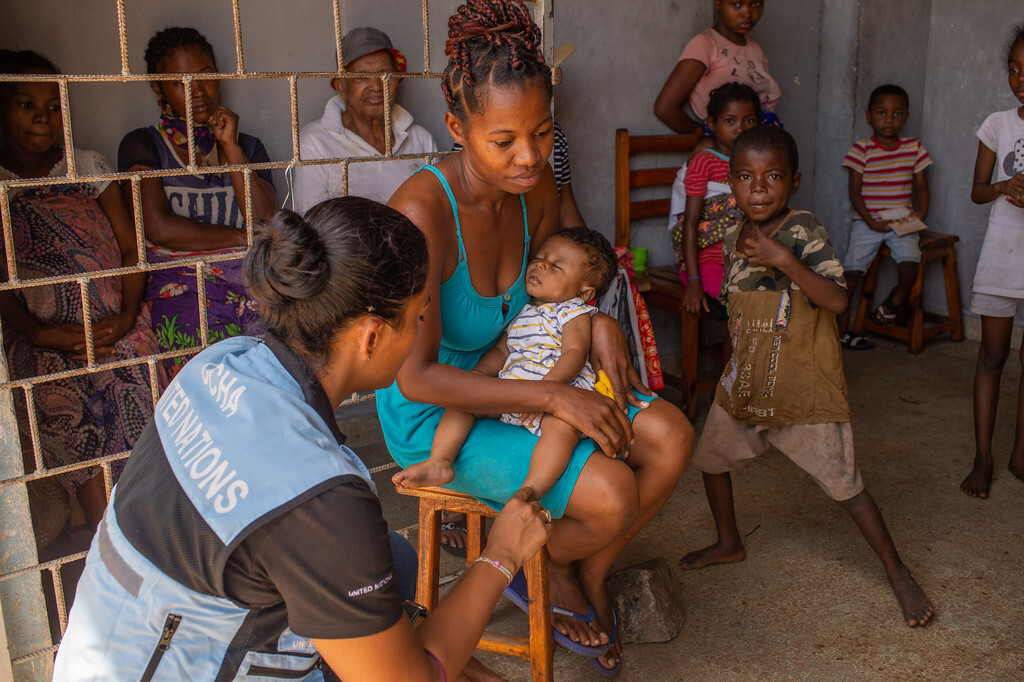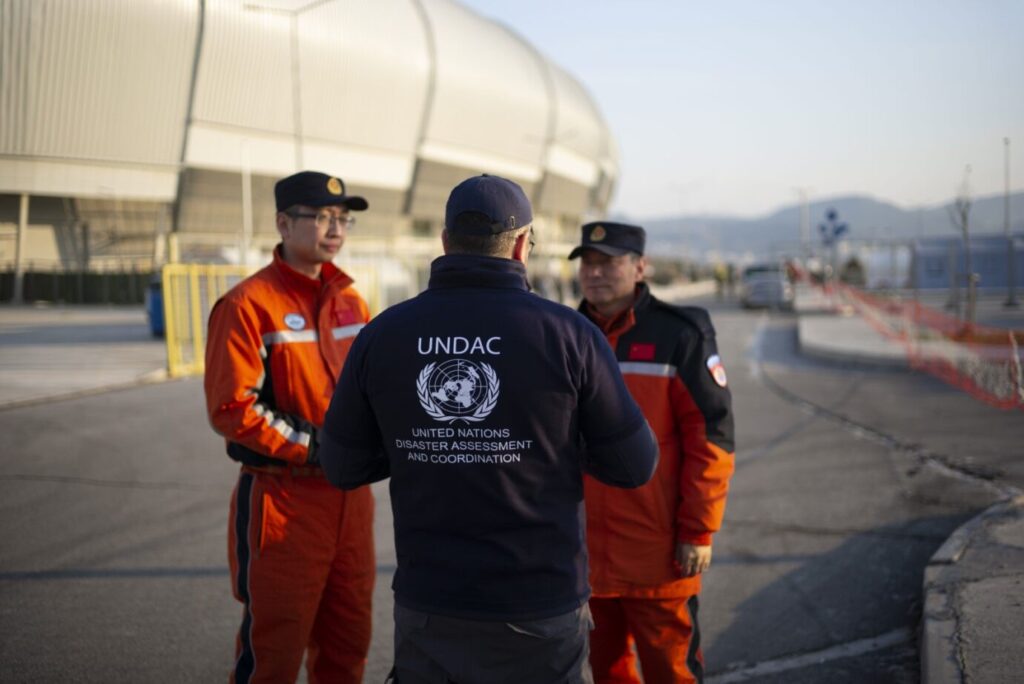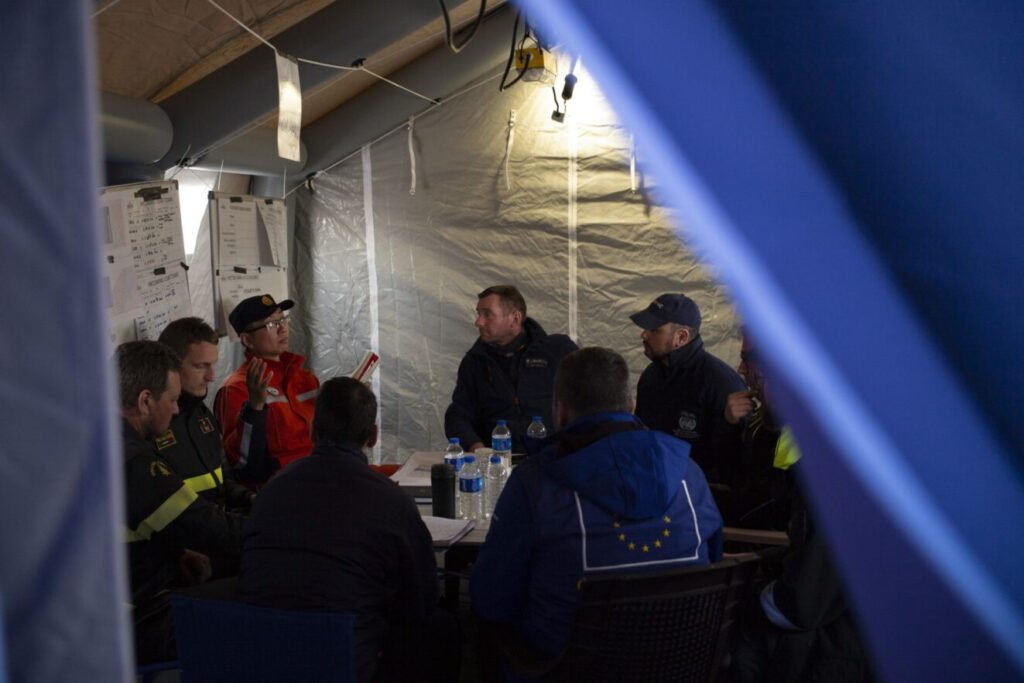About
The United Nations Disaster Assessment and Coordination (UNDAC) system is a part of the Office for the Coordination of Humanitarian Affairs (OCHA). It serves as the international response system for sudden-onset emergencies, such as an earthquake or a flood, and is designed to help the United Nations and governments of disaster-affected countries during the first phase of an emergency.
ABOUT OCHA
OCHA is the part of the United Nations Secretariat responsible for bringing together humanitarian actors to ensure a coherent response to emergencies. OCHA’s vision is one of a world that comes together to help crisis-affected people rapidly get the humanitarian assistance they need. Our mission is to coordinate the global emergency response to save lives and protect people in humanitarian crises. We advocate for effective and principled humanitarian action by all, for all.

THE TEAM
An UNDAC team can be deployed at very short notice (24-48 hours) anywhere in the world. The UNDAC system is designed to support national governments, the UN in-country, Humanitarian Coordinators and Humanitarian Country Teams, and incoming international responders with coordination during the first phase of a sudden-onset emergency. It also aims to advise and strengthen national and regional disaster response capacity. UNDAC teams comprise experienced emergency managers that are made available for UNDAC missions by their respective governments or organizations.

UNDAC teams are equipped to be self-sufficient.
They are trained in various skills, such as coordination, needs assessments and information management. The teams also advise and strengthen national and regional disaster response capacity.
When required, an UNDAC team establishes and runs an On-Site Operations Coordination Centre (OSOCC) and a Reception and Departure Centre (RDC), which provide a platform for cooperation, coordination and information management for international humanitarian response agencies and national responders. First responders use the Virtual OSOCC (VOSOCC) website for real-time information exchange during ongoing emergencies.
“A year since a series of earthquakes killed 50,000 people in Türkiye and 5,900 people in Syria, thousands of families have yet to heal from the impact of the devastation. Survivors live with the loss and trauma of those frightful days.
As I saw firsthand in both countries, entire communities lost their homes and thousands of buildings were flattened, with schools, hospitals, mosques and churches destroyed or damaged. (…)
Today, our thoughts are again with the survivors and those who lost loved ones. And for those who still need humanitarian assistance, our pledge remains to do all we can to continue to help.”
Martin Griffith, Under-Secretary-General for Humanitarian Affairs and Emergency Relief Coordinator, on the one-year anniversary of the earthquakes in Türkiye and Syria, 6 February 2024

MANAGEMENT
The UNDAC system is managed by OCHA’s Emergency Response Section (ERS) in the Response Support Branch (RSB).
As well as working with OCHA regional offices and other parts of OCHA, ERS works with UNDAC national focal points. ERS also acts as the secretariat of the International Search and Rescue Advisory Group (INSARAG), which is the global network of countries and organizations dedicated to improving standards and coordination in urban search-and-rescue (USAR) preparedness-and-response operations.
Listen to this short video on the work of OCHA’s Emergency Response Section (ERS).
© UNOG/UNOCHA
METHODOLOGY AND TRAINING
The success of the UNDAC team is based on its methodology, training and procedures, which allow all UNDAC members worldwide to work on the basis of a common understanding and methods for coordination, information management and assessment, the three main tasks of an UNDAC team in the field.
The UNDAC Handbook
The Emergency Response Section has developed a Handbook to serve as a reference guide for UNDAC members both before and during missions. This handbook does not provide authoritative instructions; rather, it represents an accumulation of institutional memory related to processes and procedures for coordination within the scope of the UNDAC terms of reference.
UNDAC Training
In order to be prepared to deploy at very short notice and work together as a team according to a common methodology, UNDAC members have all undergone the same type of training. UNDAC training consists of the following courses:
- The UNDAC Induction Course consists of a 2-4-week online learning phase, followed by a 2-week intensive training course. Upon successful completion, participants are eligible to join the UNDAC emergency roster upon signing the contract. UNDAC members are expected to make themselves available for emergency missions at least 2-3 times a year.
- The UNDAC Refresher Courses are 4-5-day training courses, which UNDAC members are required to take every 2 years in order to keep abreast of developments in methodology and the humanitarian context and improve their capacity to be operational in missions.
CONTACTS
OCHA (ERS) GENEVA
Emergency Response Section (ERS)
United Nations Office at Geneva
Palais des Nations
CH-1211 Geneva 10
Switzerland
During Office Hours (08:00 – 18:00 CET): +41 22 917 1234 (switchboard)
OCHA NEW YORK
United Nations Headquarters
1 United Nations Plaza
New York, NY 10017
USA
During Office Hours (08:00 – 18:00 EST): +1 (212) 963 1234 (switchboard)
UNDAC MOBILIZATION AND MISSIONS
In emergencies when an UNDAC team is mobilized by OCHA ERS, the emergency number during a mobilisation is as follows. This number is normally manned 24/7 by the Duty Officer of OCHA ERS and will be transferred to the OCHA ERS Mission Focal Point in case of mobilisation.
Phone: +41 22 917 1600
Email: undac@un.org

